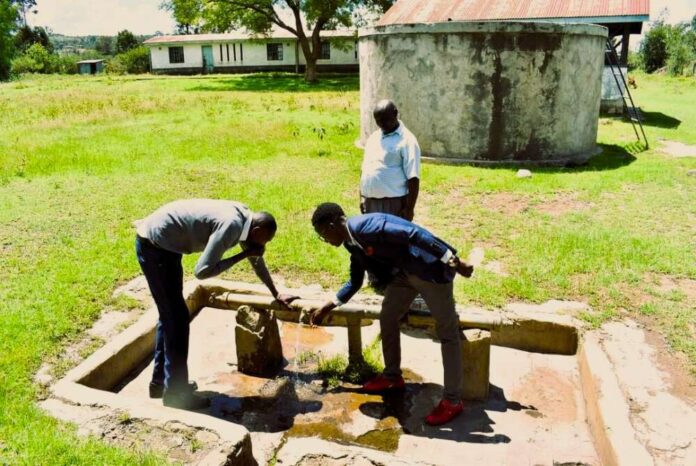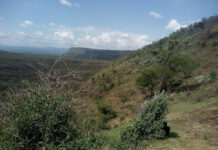By Stephen Khaemba, DevReporter, Nakuru County

Key Highlights
- The Ogiek community recently won a legal battle against the Kenyan government over evictions from the Mau Forest, highlighting their ongoing struggle for the recognition of their rights.
- Despite residing near the Mau Forest, the Ogiek people face challenges in accessing clean water for domestic use.
- The narrative underscores the fundamental human right to access clean water, emphasising the need for immediate action to put in place sustainable water solutions for the Ogiek community.
- There is a call for the Nakuru County government to prioritise construction of protected boreholes, to reduce dependency on contaminated sources.
In the expansive lush green, rolling hills of the Mau Forest, lives the Indigenous Ogiek community that recently won another legal battle against the Kenyan government over evictions from the forest.
With their close and ongoing relationship with nature, the community is well-known as Kenya’s first hunters and gatherers who, since the start of British colonial rule, have resided in the Mau Forest Complex, the largest mountain forest in East Africa
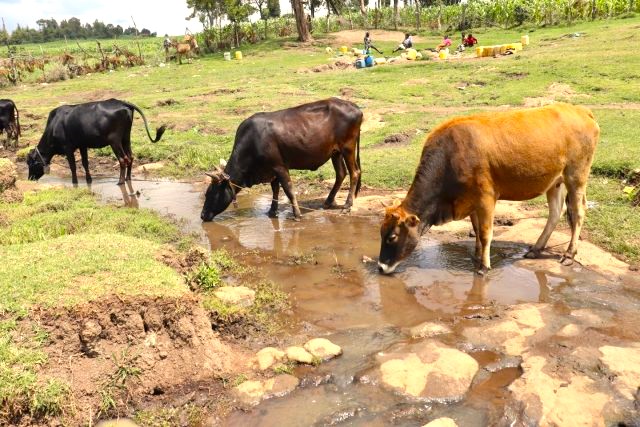
The Ogiek people have historically been neglected and thrown to the fringes of the Kenyan society. While Mau Forest is a source of plenty of water, access to clean water for domestic use is still a major problem for the community.
It is common to observe girls and women fetching water in jerrycans to take to their homes for household use while animals like cattle and donkeys drink next to them. The water sources are further contaminated due to poor sanitation habits like open defecation.
According to Richard Kosgey, a member of the Indigenous Ogiek community, “diseases such as typhoid, cholera, and dysentery are quite common in our community”. He continued: “As a matter of fact, I was bedridden for weeks, and my children suffered too due to poor sanitation and unsafe drinking water. The community health volunteer taught us how to boil water and use water purification tablets. It saved our lives.”
According to a report commissioned by Center for Disease Control and Prevention 2023, boiling water is an effective way to make it safe for drinking. Also, treating water with chlorine products is another way of making it safe. Heating water to a high temperature aid in killing viruses and bacteria that cause waterborne diseases.
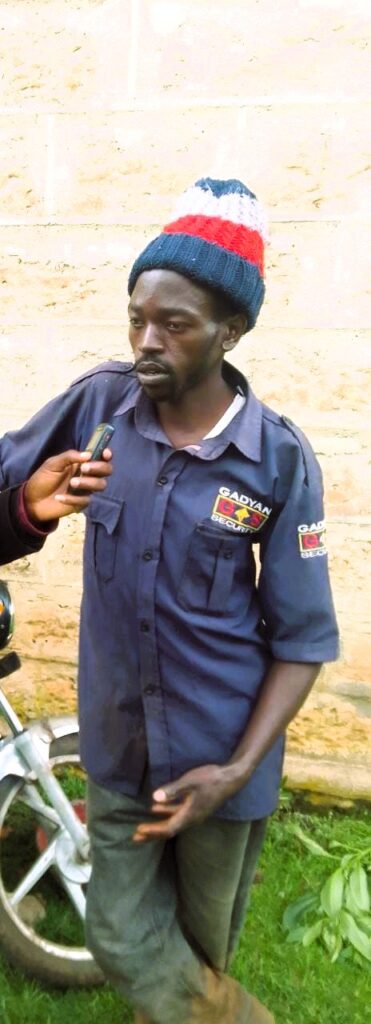
For Collins Lesingo, a young adult who fought off cholera, it was a close call. “The cholera itself was a merciless beast that struck suddenly and without warning. I was one of its victims who experienced frequent, severe attacks of diarrhoea and vomiting.
“The amount of bodily fluids released during the agony was staggering. The pain was severe. I became dehydrated, and as a result, my body dwindled away, my skin sagged, and my eyes became empty and haunting.”
Collins added “But amid this grim struggle, there were those who stepped up – Community Health Volunteers (CHVs) among the Ogiek – who served as beacons of hope. They educated us on the importance of hygiene and sanitation, and tirelessly emphasised the need to prevent water-borne diseases in our homes. However, their noble efforts were often thwarted by the cruel reality of our situation – a lack of access to clean and safe water in Mariashoni Molo-Subcounty and Nessuit in Njoro constituency.”
“We move from one household to another, urging people to use clean water. But what choice do they have if they cannot access water from a clean and safe source?,” wondered Hellen Sitiengi, one of the dedicated CHVs.
Hillary Leleito, another CHVs who has done the job for two years, asked the leaders in authority to at least provide them the with stipends to facilitate their swift movement in order to reach patients in time before it gets worse. He also claimed that poor road infrastructure in the area hinders their smooth movement from one place to another.
As the popular phrase goes, “health is wealth,” and the Ogiek community, like any other, thrives on good health. CHVs play a pivotal role in improving public health among the Ogiek, through sensitising people about diseases and encouraging the sick to seek medical attention.
Wesley Chepkwony, the chairman of the Community Health Volunteers (CHVs), Mariashoni, said that the major challenges being faced by community is poor infrastructure and health facilities being far from the people. Lack of knowledge among the people about transmission and prevention of water-borne diseases is another challenge the community faces.
Joseph Prengei, a village elder, Ndoswa village, thanked the CHVs for the good humanitarian work they are providing to the community. He also asked every member of the community to make sure they use clean and safe water for domestic purposes so that all water-borne diseases are eliminated once and for all.
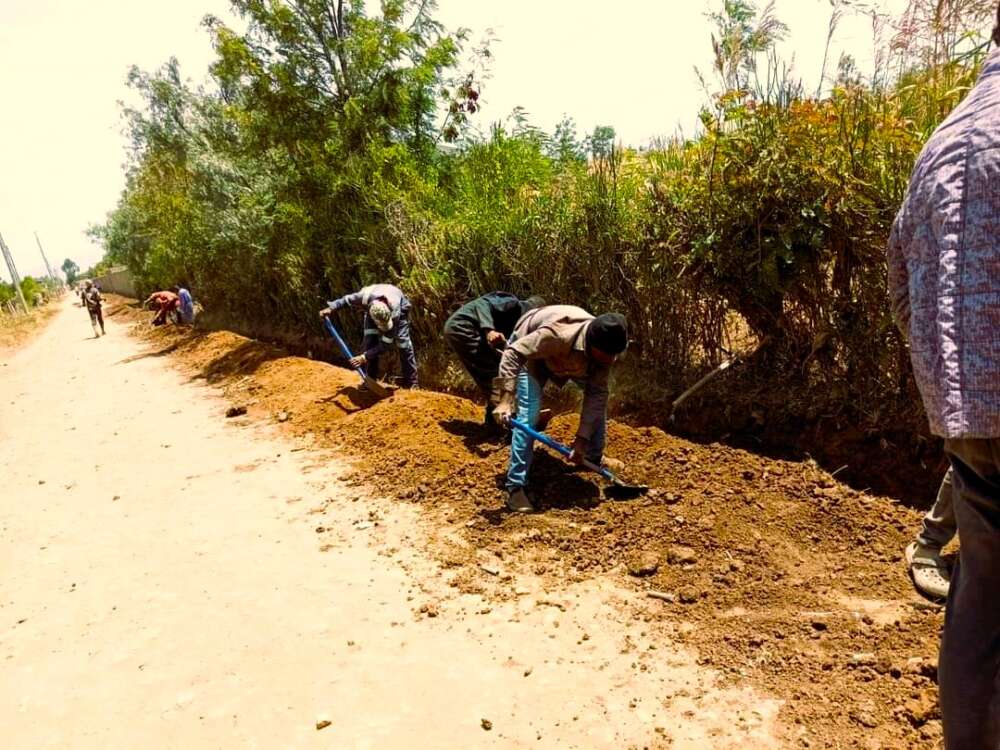
Fundamental Human Right
Access to clean water is a fundamental human right. To ensure that the Ogiek community have immediate access to clean water, it is imperative to install protected boreholes, and water storage tanks.
Providing vulnerable areas with piped water must be a top priority for the Nakuru County government in order to reduce dependency on contaminated sources such as rivers and stream for household use.



